Directory
- Share
Valena Reich
- Alumni
- Germany
- 2023 MPhil Ethics of AI, Data and Algorithms
- Lucy Cavendish College
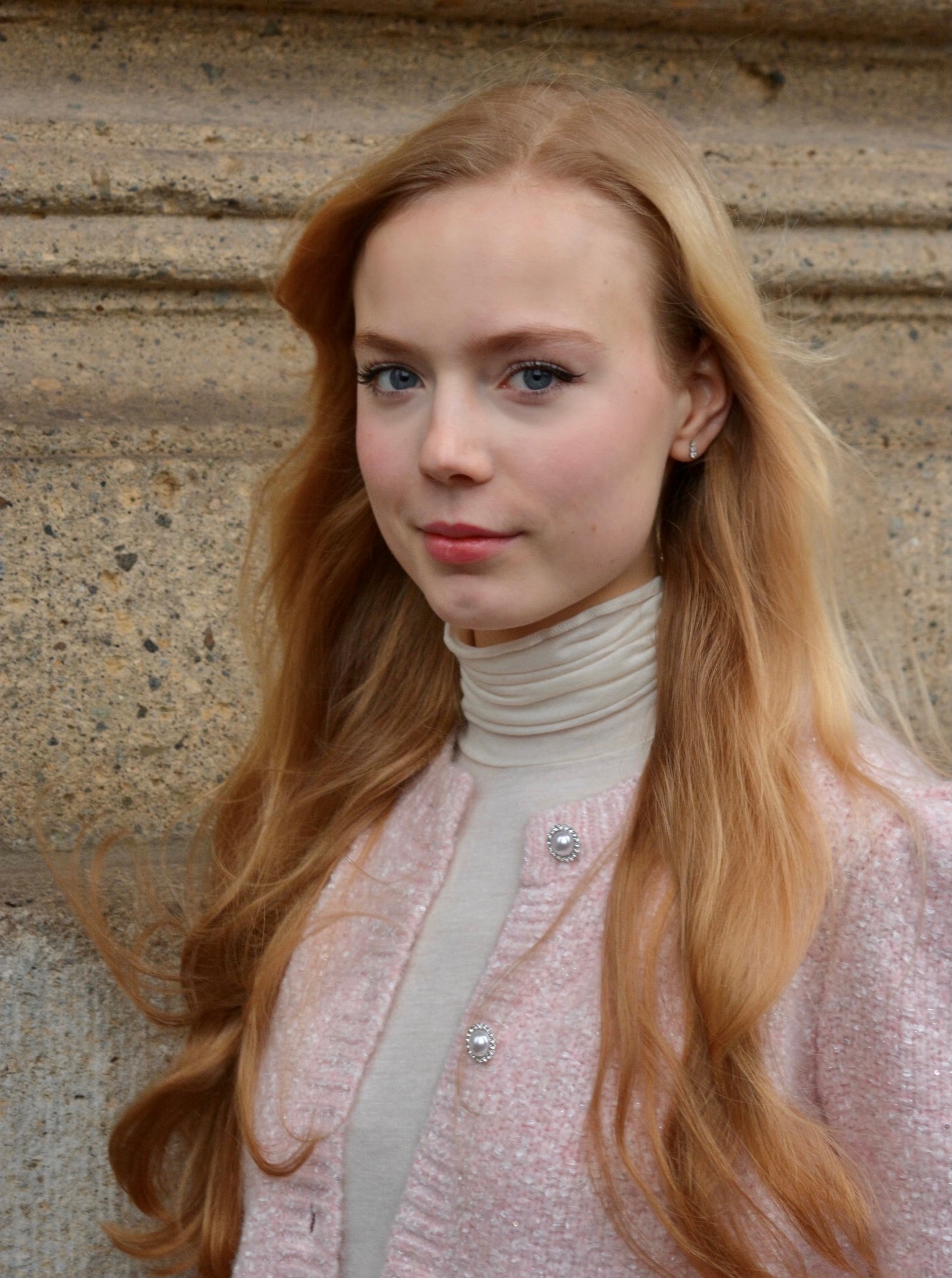
Valena Reich
- Alumni
- Germany
- 2023 MPhil Ethics of AI, Data and Algorithms
- Lucy Cavendish College
Starting my bachelor’s degree in Philosophy at King’s College London, I aspired to use my analytical and creative problem solving skills to contribute to society. The ethics of Artificial Intelligence is an emerging field in philosophy, which sparked my interest as it holds the key to shape technological innovation as beneficial for all. The questions I focus on assess the impact of AI on our epistemic agency, how to assign responsibility to AI frameworks, and especially how an artificial moral agent should ethically behave in a pluralistic society. During my MPhil in Ethics of AI, Data and Algorithms, led by experts from the Leverhulme Centre for the Future of Intelligence, I aim to learn and produce meaningful research for the field of ethics of AI, facilitated through an interdisciplinary approach sourcing technical knowledge about AI combined with philosophy. Moreover, I hope to engage with and mutually inspire the communities of Gates scholars, Cambridge, and beyond.
Previous Education
King's College London (University of London) Philosophy 2023
Francis Reid
- Alumni
- New Zealand
- 2003 PhD History & Philosophy of Science
- Corpus Christi College
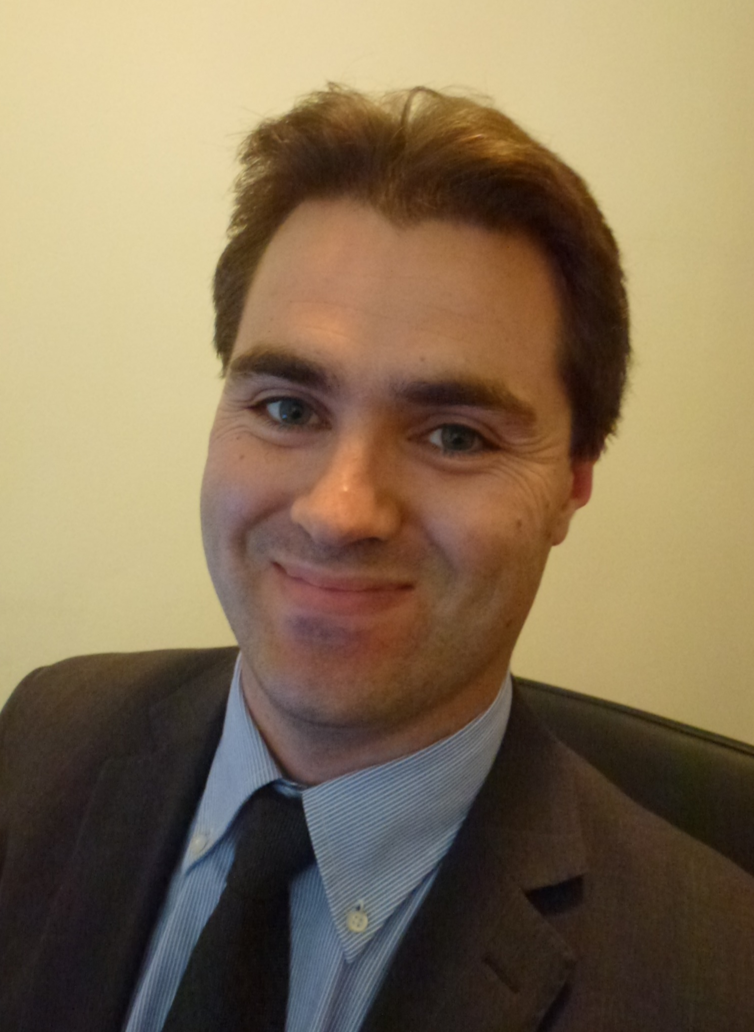
Francis Reid
- Alumni
- New Zealand
- 2003 PhD History & Philosophy of Science
- Corpus Christi College
Alexandra Reider
- Alumni
- United States
- 2012 MPhil Anglo-Saxon, Norse and Celtic
- Wolfson College

Alexandra Reider
- Alumni
- United States
- 2012 MPhil Anglo-Saxon, Norse and Celtic
- Wolfson College
After growing up in San Francisco, California, I moved not very far away to go to UC Berkeley, where I studied Comparative Literature and French. At Berkeley, I developed a particular interest in early medieval literature, and I am delighted to continue this course of study at Cambridge. My research looks at the use and literary potential of the catalogue form in Old English, Old Norse, and medieval Celtic poetry. I also have an ongoing interest in French language, literature, and landscape: I spent my junior year abroad studying and Alp-gazing in Grenoble, and I just got back from another year in France -- this time teaching English in Cherbourg.
Valentine Reiss-Woolever
- Alumni
- United States
- 2019 PhD Zoology
- St Edmund's College
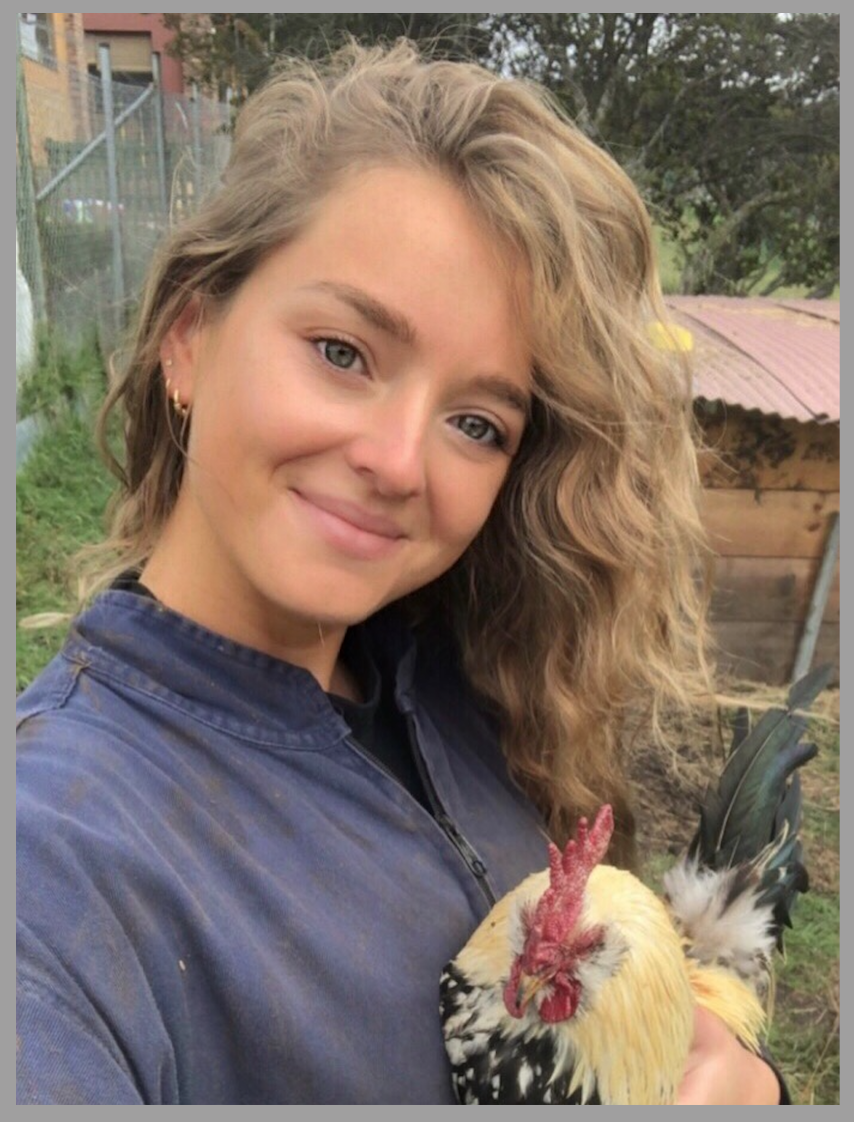
Valentine Reiss-Woolever
- Alumni
- United States
- 2019 PhD Zoology
- St Edmund's College
After a childhood in Arizona's biodiverse Sonoran desert and later Düsseldorf, Germany, I studied Zoology at University College Cork in Ireland, including an exchange at National University of Singapore. For the past several years, I have been working across Latin America in community-based conservation. Experiencing the conflicts plaguing tropical forests provoked my desire to solve a critical problem: while demand for agricultural land threatens biodiversity, production is essential to livelihoods. With Dr. Edgar Turner, I will focus on conservation and income stability in smallholder oil palm plantations, evaluating management methods’ effects on biodiversity, ecosystem functioning, and profit. The research aims to improve understanding of oil palm ecology, smallholder economic relations, and other core ecological and sociological principles. With educated management, I believe biodiversity conservation has potential to ameliorate poverty and foster improvement for a range of pressing concerns. I am truly honoured to be part of The Gates Cambridge Trust, which provides an unparalleled foundation and community for positive global change.
Previous Education
University College Cork Bachelors of Science in Zoology 2017
Tomer Reiter
- Alumni
- United States
- 2015 MASt Pure Mathematics
- Gonville and Caius College
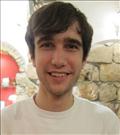
Tomer Reiter
- Alumni
- United States
- 2015 MASt Pure Mathematics
- Gonville and Caius College
Born in Israel, I moved to the United States when I was four years old and grew up mainly in Boston. Attending the Program in Mathematics for Young Scientists (PROMYS) in Boston was a pivotal point in my life. PROMYS is a six week summer program where high school students learn mathematics, specifically number theory. Here I found my passion for number theory and mathematics in general. Later summers I returned as a counselor and eventually served as head counselor. Through this I realized how excited I am to mentor and teach mathematics. At Carnegie Mellon University, I completed a major in mathematics and minor in computer science, further fueling my interest in mathematics and mentoring. In addition, I joined Alpha Epsilon Pi, a Jewish fraternity, and took on various leadership positions that made me grow closer to my Israeli heritage and cultural identity. I also took courses in Japanese language and culture to learn more about cultural differences and to further contextualize my identity. I am excited to attend Cambridge and take Part III of the Mathematical Tripos where I will delve into number theory, an area I am deeply interested in. After my time at Cambridge, I plan to attend a Ph.D. program in the United States and eventually become a professor. All the while, I hope to make contributions through teaching and mentoring just as PROMYS made an impact on me.
Previous Education
Carnegie Mellon University
Walter Rentzsch
- Alumni
- Germany
- 2001 PhD Engineering
- Gonville and Caius College

Walter Rentzsch
- Alumni
- Germany
- 2001 PhD Engineering
- Gonville and Caius College
Cole Replogle
- Alumni
- United States
- 2020 MRes Future Propulsion and Power
- Churchill College
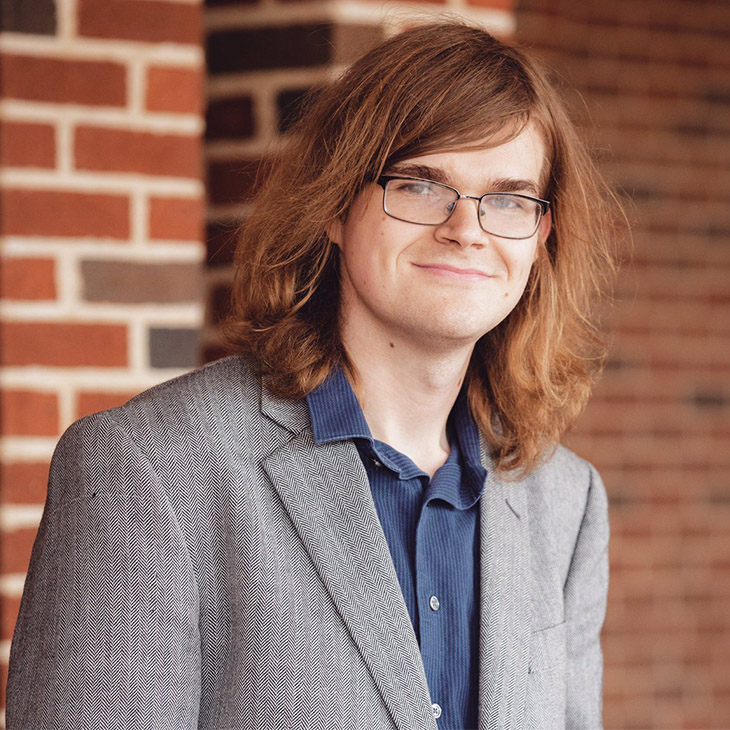
Cole Replogle
- Alumni
- United States
- 2020 MRes Future Propulsion and Power
- Churchill College
I was born and raised in northeastern Oklahoma and continued to Oklahoma State University for college. I will graduate in May 2020 with bachelor's degrees in Mechanical Engineering and Aerospace Engineering. I have researched hybrid-electric propulsion for unmanned aircraft at OSU and look forward to further developing sustainable aircraft propulsion at Cambridge through completing a MRes and PhD in Future Propulsion and Power. My involvement with the OSU chapter of Engineers Without Borders has introduced me to an international dimension of engineering development that will be important throughout my career. The global challenges of tomorrow must be attacked from all angles, and I hope to contribute by reducing the environmental impact of air travel. Outside of my schoolwork, I enjoy competing in quiz bowl, listening to philosophy podcasts, and playing heavy metal music.
Previous Education
Oklahoma State University Aerospace Engineering 2020
Mark Retter
- Alumni
- Australia
- 2011 PhD Law
- Trinity Hall

Mark Retter
- Alumni
- Australia
- 2011 PhD Law
- Trinity Hall
My thesis examines Alasdair MacIntyre’s critique of human rights philosophy and practice. Contrary to the ‘wholesale scepticism’ often attributed to MacIntyre, it is my view that a thorough engagement with his work points to a persuasive, alternative understanding of human rights based on a recovery of Aristotelian teleology that confronts the question of what constitutes a good human life. I will then challenge conventional interpretations of MacIntyre as a wholesale human rights sceptic by exploring the intellectual resources his moral philosophy offers for explaining the genesis and meaning of human rights. I am hoping to use my research to pursue a career in human rights advocacy and academic scholarship.
Mahnaz Rezaeian
- Alumni
- Iran, Islamic Republic of
- 2003 PhD Earth Sciences
- Churchill College

Mahnaz Rezaeian
- Alumni
- Iran, Islamic Republic of
- 2003 PhD Earth Sciences
- Churchill College
Having spent 3 years in Cambridge was a valuable experience and great opportunity for me that brought me more responsibilities and new horizons in my life.
Paul Rhatigan
- Alumni
- United States
- 2005 PhD Engineering
- Churchill College

Paul Rhatigan
- Alumni
- United States
- 2005 PhD Engineering
- Churchill College
I thoroughly enjoy my studies at Cambridge. My research in the Nanoscience Centre focuses on a novel method to study the electrical properties of DNA using nanofabrication techniques. The field of molecular electronics has fascinating applications that are only beginning to be realized. I'm looking forward to tackling new challenges and taking advantage of interesting opportunities in the coming year.
Allison Rhines
- Alumni
- United States
- 2010 MPhil Human Evolutionary Studies
- Christ's College
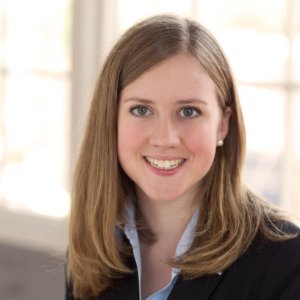
Allison Rhines
- Alumni
- United States
- 2010 MPhil Human Evolutionary Studies
- Christ's College
Previous Education
Stanford University 2010
Ayesha Riaz
- Alumni
- Pakistan
- 2016 PhD Genetics
- Churchill College
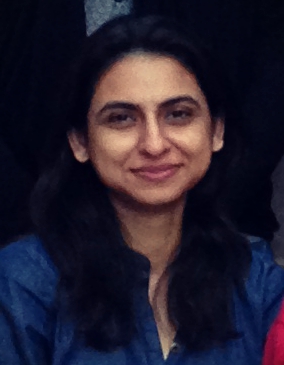
Ayesha Riaz
- Alumni
- Pakistan
- 2016 PhD Genetics
- Churchill College
I grew up and live in Karachi and received my undergraduate degree in Biology from the University of Karachi. I also did my M. Sc. from the same university and later on became associated with it as a faculty member in the Department of Genetics. I completed my M. S. in Genetics from the Iowa State University on a Fulbright scholarship. For my thesis, I investigated the possible roles played by the RNase T2 enzymes and lysosomal membrane proteins in ribosomal RNA degradation in the lab of Dr. Gustavo MacIntosh. I collaborated with Dr. Linda Ambrosio on the project who introduced me to the wonderful world of fly genetics whereby I developed a keen interest in using the fruit fly, Drosophila, for modelling human neurodegenerative diseases. Hereditary spastic paraplegia constitute a heterogeneous group of hereditary disorders characterized by progressive lower limb weakness due to damaged or dysfunctional nerves and form the second most important group of motor neuron diseases. My doctoral research will be undertaken under the supervision of Dr. Cahir O’Kane and will focus on understanding the roles of hereditary spastic paraplegia genes involved in organisation of axonal endoplasmic reticulum. Upon completion of my Ph. D., I intend to join back my university to continue teaching and doing research in my field of study. I am excited and honoured to begin my doctoral studies at Cambridge as part of the Gates community.
Previous Education
University of Karachi
Iowa State University
Nicholas Rice
- Alumni
- South Africa
- 2013 MPhil Advanced Chemical Engineering Practice
2014 PhD Chemical Engineering - Magdalene College
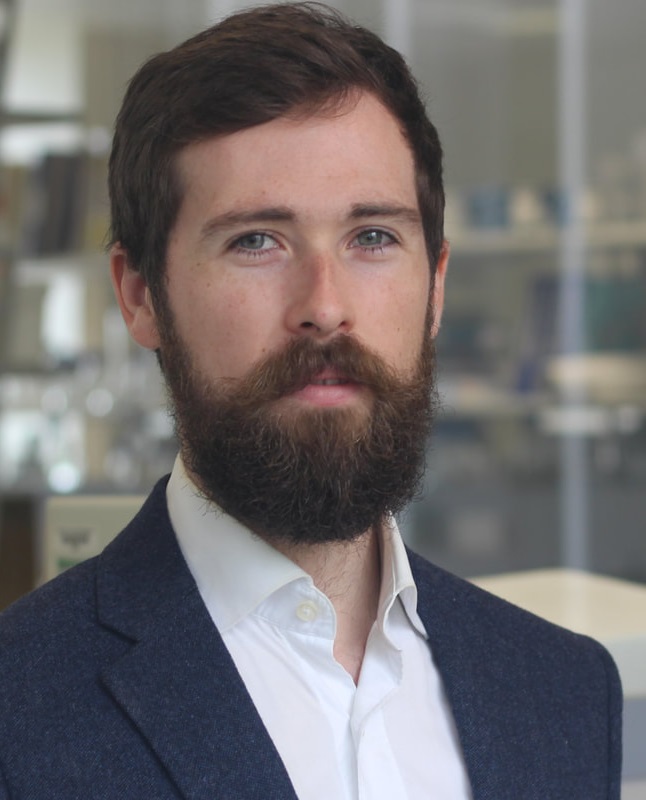
Nicholas Rice
- Alumni
- South Africa
- 2013 MPhil Advanced Chemical Engineering Practice
2014 PhD Chemical Engineering - Magdalene College
South Africa’s energy sector is characterised by an unsustainable dependence on coal. In this however, I see tremendous opportunity for the development of sustainable energy technology. At Cambridge I will be pursuing an MPhil in Advanced Chemical Engineering, hoping to reinforce my knowledge of catalysis and computational modelling, and increase my flexibility as a research engineer one day operating within the dynamic field of renewable technology. Through many previous projects and my current research in fuel cell science, I am increasingly passionate about the role chemical engineering has to play in meeting global diversification targets. I want to direct my work to developing modular off-grid electrification solutions, such as biomass gasifiers, for rural and under-developed communities in South Africa as a mechanism to stimulate social development. Advancements in the catalytic cracking of biomass-derived syngas tars could drive gasification technology towards commercialisation.
Annabelle Richard-Laferrière
- Alumni
- Canada
- 2019 PhD Astronomy
- St John's College
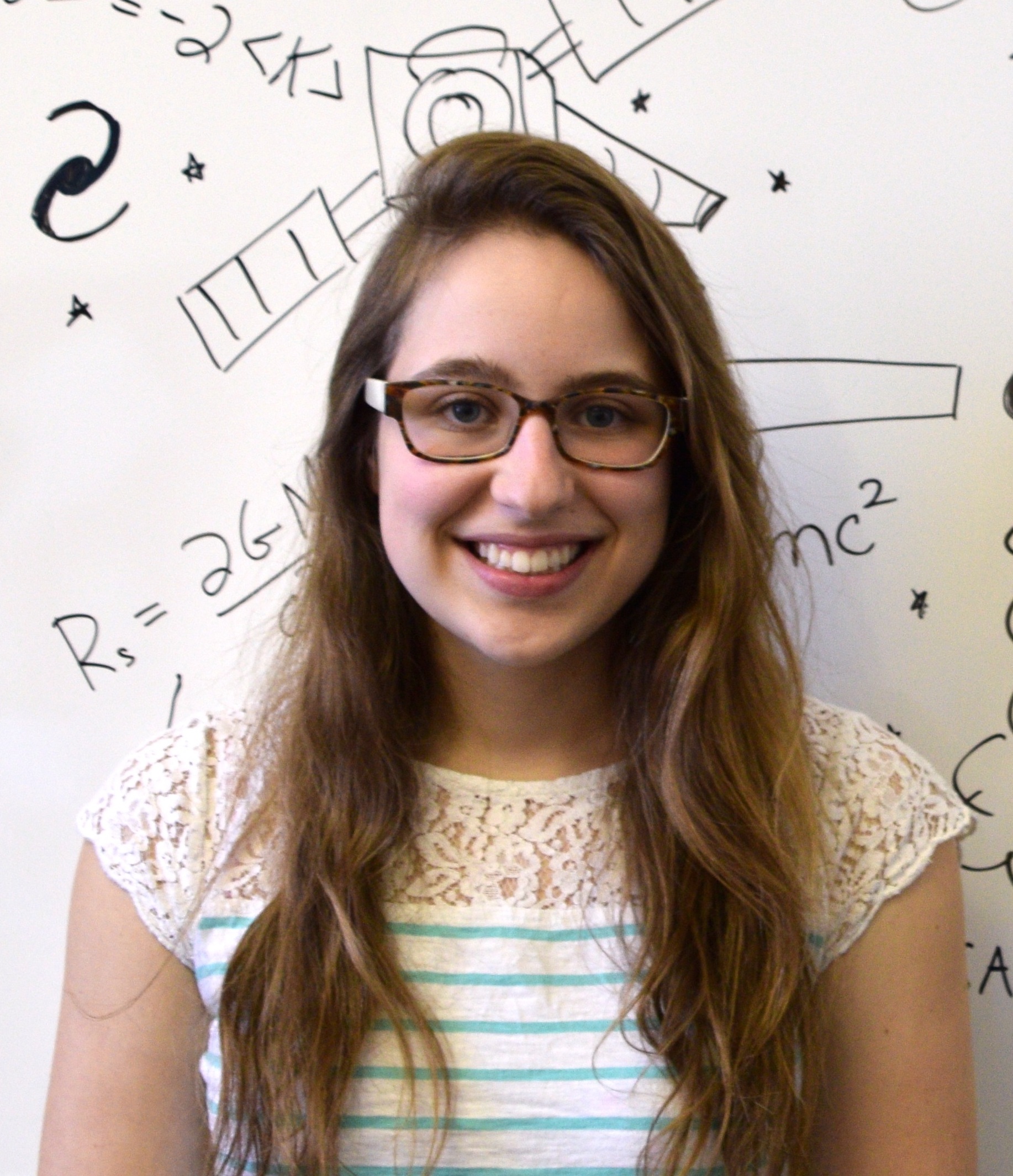
Annabelle Richard-Laferrière
- Alumni
- Canada
- 2019 PhD Astronomy
- St John's College
I have always been passionate by science to learn about and understand the Universe around us. I therefore went in Physics at Université de Montréal (UdeM) for my B.Sc. during which I did a project studying the impact of supermassive black holes (SMBH) on their environment; black holes being my long time fascination. I was thrilled to continue in the same field for my M.Sc. studying the mass of a SMBH believed to be one of the biggest in the Universe in collaboration with Texas A&M University, where I spent three months. With this experience, an exchange in Australia and an internship in Germany, I knew that I wanted to do my PhD outside of Canada as, to me, it is really important to be in contact with people from around the world. Therefore, I am delighted to pursue a PhD at Cambridge in Astronomy studying mechanisms enabling SMBH to transfer energy to their surroundings. In addition to my research, I want to get involved in astronomy outreach in my department and in the city as I am very passionate about communicating science to my peers as well as to the general public. I want to encourage the curiosity of people especially children towards astrophysics and science. I also work to empower girls and women in physics, by helping in the creation of the Diversity Physics Committee at UdeM and participating to events for girls. I am really honoured to be part of the Gates Cambridge Community, an international community driven by having an impact in the world around them.
Previous Education
Universite de Montreal Physics 2019
Universite de Montreal Physics 2017
Connor Richards
- Alumni
- United States
- 2016 MASt Applied Mathematics
- Churchill College
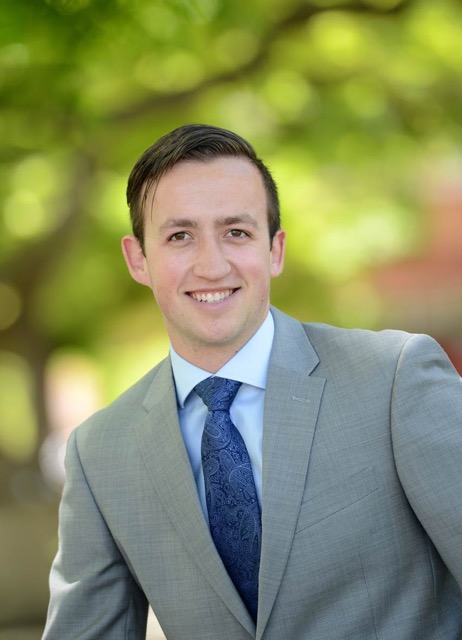
Connor Richards
- Alumni
- United States
- 2016 MASt Applied Mathematics
- Churchill College
As an undergraduate studying physics at the University of California, Riverside, I worked alongside faculty searching for evidence of new physics at CERN’s Large Hadron Collider (LHC). During my time at UC Riverside, I became very active in science outreach and advocacy, including developing an outreach program targeted at local high school students. At Cambridge, I hope to continue my outreach work with physicists from the Cavendish Laboratory while reading for a MASt in Applied Mathematics and Theoretical Physics from DAMTP. My field is elementary particle physics, meaning that I am interested in what makes up the universe at the most fundamental level. Dark matter and other questions about the universe have long fascinated me, and I hope to help answer these during my career. Moreover, I hope to help explain their significance to the general public, because I believe that better access to cutting-edge science is needed in primary and secondary schools. A lack of exposure to science during my childhood almost stifled my career before it began, so – with this in mind – it is my goal to help make science more accessible to all. I am ecstatic to study at Cambridge alongside some of the world’s foremost physicists, and following my time at Churchill College, I will study at Princeton University for my Ph.D. in Physics. Ultimately, I hope to secure a faculty position in physics. Interests: public speaking, volleyball, soccer, American football, science outreach, running, and embarrassingly bad math jokes
Previous Education
University of California, Riverside
Alexandria Richart
- Alumni
- United States
- 2006 PhD Biochemistry
- Clare Hall
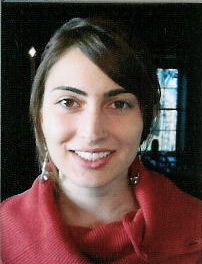
Alexandria Richart
- Alumni
- United States
- 2006 PhD Biochemistry
- Clare Hall
For my PhD project I will be investigating the relationship of DNA methylation to chromatin structure and gene expression control.
Chelsie Riche
- Alumni
- United States
- 2017 MPhil African Studies
- Newnham College
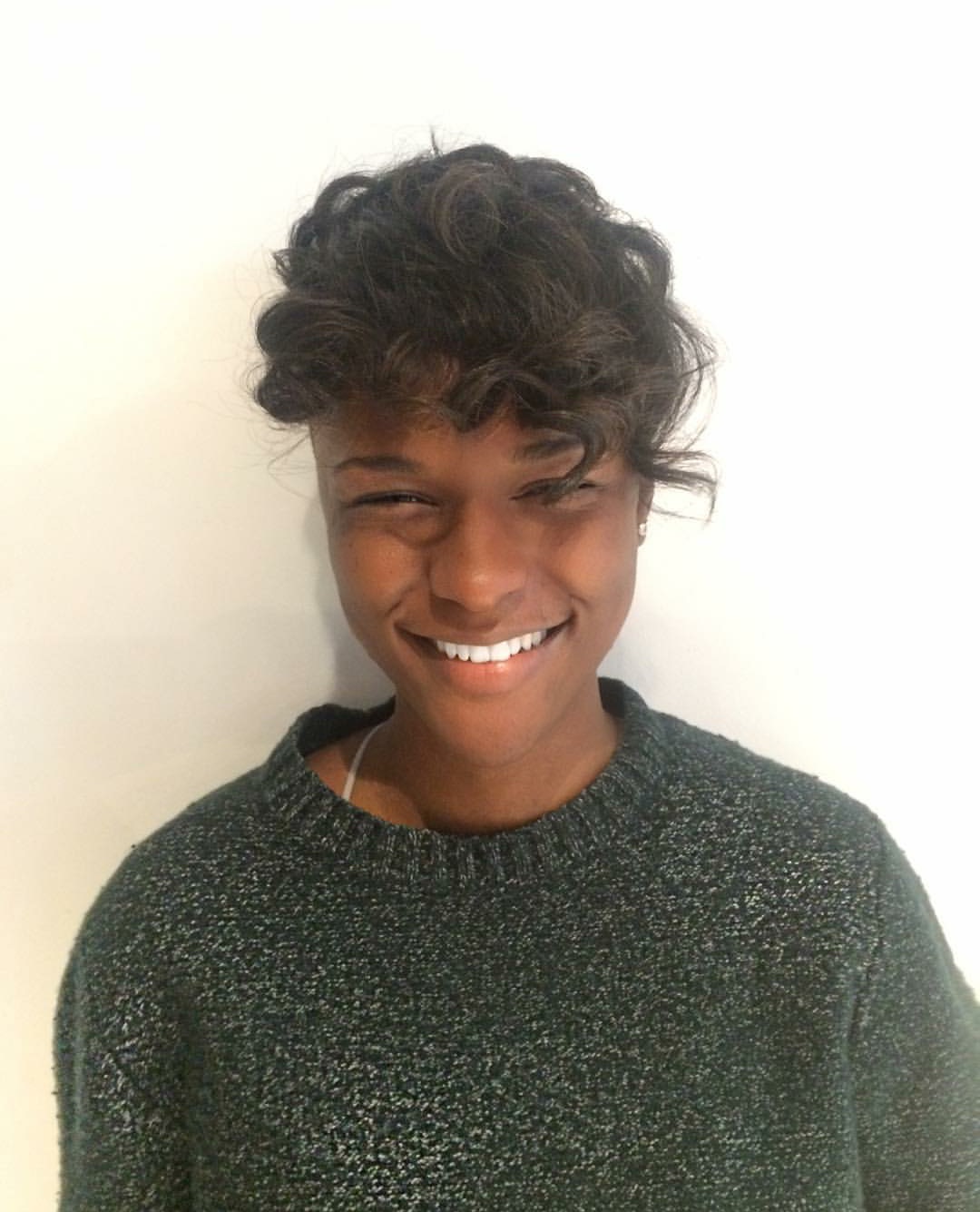
Chelsie Riche
- Alumni
- United States
- 2017 MPhil African Studies
- Newnham College
My activism is centered on providing access to education for marginalized communities. At Rutgers University, I received my B.A. degree in Africana Studies and History. I served as president of the Galvanizing and Organizing Youth Activism (GOYA) organization, where I have planned 5k walks to promote literacy, and have collected school supplies for local and global communities. Spring 2016, I travelled to Cape Town South Africa to participate in a service learning program at Ned Doman High School, where I collaborated with the University of Cape Town to facilitate college readiness workshops for over 90 learners. The following summer, I served in Washington D.C. as an intern for Senator Cory Booker, working with his Senior Team on Education Policy. At Cambridge, I will attain an MSc in African Studies, and my research will center on the contemporary student led #FeesMustFall movement in post-apartheid South Africa. My ultimate goal is to obtain a PhD/JD in Education and Law to hopefully influence education reform policy. I am extremely honored to be joining the Cambridge community, and even more grateful to be amongst a network of great leaders with the Gates Cambridge Scholarship program.
Previous Education
Rutgers University, Graduate School of Education, Ed.M. in Education, Culture, and Society, 2024
Rutgers University, Edward J Bloustein School for Planning and Public Policy, Master of Public Policy, 2023
Rutgers University, School of Arts and Sciences, B.A. in Africana Studies and History, 2017
Maxime Riche
- Alumni
- France
- 2005 MPhil BioScience Enterprise
- Hughes Hall

Maxime Riche
- Alumni
- France
- 2005 MPhil BioScience Enterprise
- Hughes Hall








